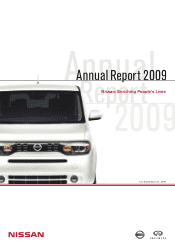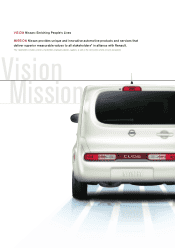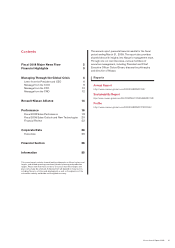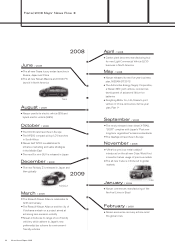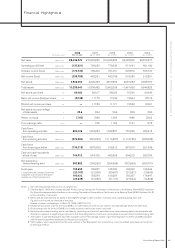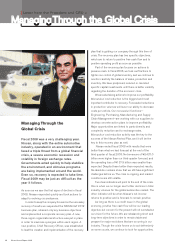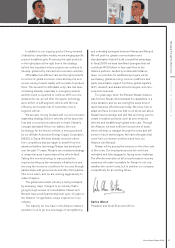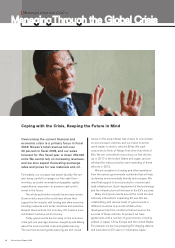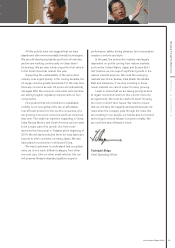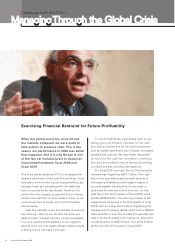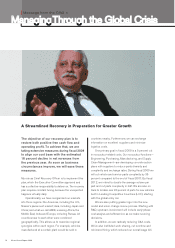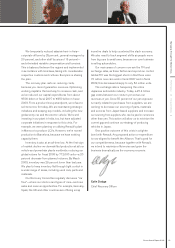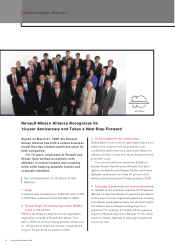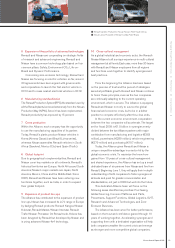Nissan 2009 Annual Report Download - page 10
Download and view the complete annual report
Please find page 10 of the 2009 Nissan annual report below. You can navigate through the pages in the report by either clicking on the pages listed below, or by using the keyword search tool below to find specific information within the annual report.
Message from the COO >
Overcoming the current financial and
economic crisis is a primary focus in fiscal
2009. Nissan’s total revenue fell over
20 percent in fiscal 2008, and our sales
forecast for this fiscal year is down 300,000
units. We cannot rely on increasing revenues,
and we also expect fluctuating exchange
rates and prices for raw materials and oil.
Fortunately, our company has ample liquidity. We are
also being careful to manage our free cash flow—
inventory, accounts receivable and payable, capital
expenditures, expenses—to preserve cash and to
invest in the future.
The whole automotive industry faces many issues.
Governments around the world have shown their
support for the industry with funding and other economy
-
boosting measures such as tax incentives and subsidies.
Despite these actions, the economy still needs a more
solid base to achieve a full recovery.
Today governments are focusing on the economic
crisis; just one year ago, however, everybody was talking
about the environmental crisis and global warming.
The environment and global warming are still crucial
issues. In this area, Nissan has chosen to concentrate
on zero-emission vehicles, and we intend to be the
world leader in electric vehicles (EVs). We want
consumers to think of Nissan first when they think of
EVs. We are committed to launching our first electric
car in 2010 in the United States and Japan, and we
will start the mass production and marketing of these
vehicles in 2012.
We are receptive to funding and other assistance
from the various governments worldwide that will help
us develop environmentally friendly technologies. We
need that support to boost production volumes and
build infrastructure. Quick deployment of the technology
and the infrastructure will be keys to the EV’s success.
Many local governments around the world are also
intensely interested in expanding EV use. We are
collaborating with various levels of governments in
different countries to promote infrastructure
development and the conditions that will ensure the
success of these vehicles. At present, we have
agreements with a number of governments, including
entities in Japan, China, Europe and the United States.
For example, we are now preparing EV charging stations
and subsidies for EV users in Yokohama, Japan.
Coping with the Crisis, Keeping the Future in Mind
08 Nissan Annual Report 2009

